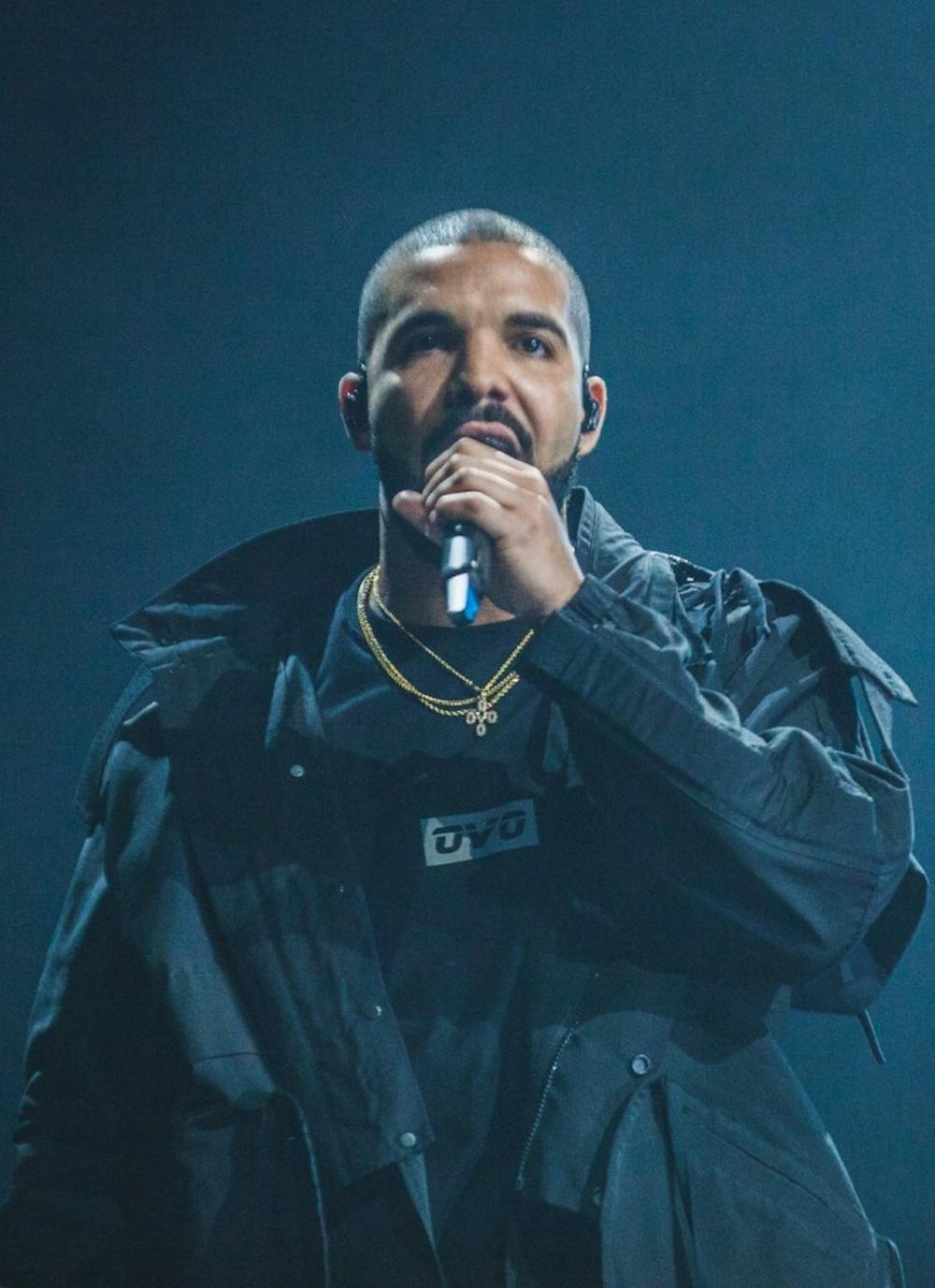After two months of anticipation and excitement from his fans, Drake has dropped “Scorpion,” his 2018 double album featuring 25 songs. It’s his ninth album and his fifth solo album in the 10 years since his career took off. In the years since he started, Drake has consistently produced chart-topping albums that are both classic and trendy, and “Scorpion” is no different.
On “Scorpion,” Drake has done what any good artist of his stature would do. He uses his own identifiable style of strong bass and emotional lyrics while also tailoring his songs to his audience. He also implements more impressive beats that replace complicated lyrics in order to go along with new rap trends. Tracks such as “Nice for What” and “Nonstop” emulate this dichotomy he creates in his music. He combines catchy lyrics with a hard-hitting bass to form songs that will be stuck in your head for days.
Paired with these more upbeat hits are songs that show off his “soft” side and take Drake fans back to the rapper’s early style, showing similarities to his old music. Songs such as “Emotionless” and “Don’t Matter to Me” exemplify Drake’s emotionally driven style seen in his older music. They bring in a mix of his poignant lyrics and soft tempos and are reminiscent of his older hits such as “Marvin’s Room” and “Take Care.”
Drake also steps out of the norm by splitting up “Scorpion” into two sides, like a cassette tape. This layout is unique and rarely seen in modern albums. Double albums create a significant divide that allows the listener to feel each side’s meaning individually while also understanding the album as one holistic work.
Side one of “Scorpion” is filled with songs that show off Drake’s rapping ability. With tracks such as “God’s Plan” and “Survival,” Drake lets his verses flow on this side of the album. Side two of “Scorpion” is filled with more classic R&B sounds. “Blue Tint” and “In My Feelings” define the vibe of this side and reflect Drake’s smoother side. Side one presents a macho version of Drake and reveals his rapping prowess, which balances out his soft side expressed on side two.
While effective in doing so, “Scorpion” does much more than solely define Drake’s personality. After Pusha T released a diss track revealing the secret of Drake’s son, speculations about the rapper’s morals have circled around. Drake released the single, “I’m Upset,” as both a response to Pusha T, and a lead-up song to his upcoming album. This track, however, fell flat and was unimpressive to many fans. “Scorpion” as a whole does better than the diss track at refuting Pusha T’s attacks and attempting to put all rumors about Drake to rest.
“I wasn’t hiding my kid from the world, I was hiding the world from my kid,” Drake professes in “Emotionless.”
Drake’s relationship with his son is mentioned multiple times on the double album, in songs such as “Emotionless” and “March 14.” Some think that “March 14” was in reaction to Pusha T, but it is also said that the song was written much before the diss track. In these tracks, Drake shows love for his son and a heavy feeling of responsibility and worry about their future.
“I wanted it to be different because I’ve been through it, but this is the harsh truth now,” he admits in “March 14,” the last track on side two of “Scorpion.” “Fairytales are saved for the bedtime stories.”
Drake uses this album to become vulnerable with new experiences that he’s never rapped about before. His audiences are used to hearing emotional music from him, but not in this form and with the content he is showing now. Before he mourned breakups or lost love, and now he’s expressing his fear for his son. In “March 14,” he claims that it “breaks his spirit” to think about his possible shortcomings as a father and his hypocritical actions.
“I used to challenge my parents on every album,” he laments. “Now I’m embarrassed to tell them I ended up as a co-parent.”
Despite these emotional tracks where he wears his heart on his sleeve, “Scorpion” is still very much an album for the radio. His new songs are a well-crafted blend of vulnerability and energy; some tracks are for the individual listener, and others are for a party atmosphere. Drake uses music as an expressive medium that allows the duality of his albums to reflect his own personality. In doing so, he reveals himself to his listeners.
Drake has been creating chart-topping music since 2008. His music spans over a decade of rap production and it defines his generation. “Scorpion” has proven that Drake’s talent has yet to falter, sending the message that this 31-year-old artist is not ready to leave the rap game anytime soon.





